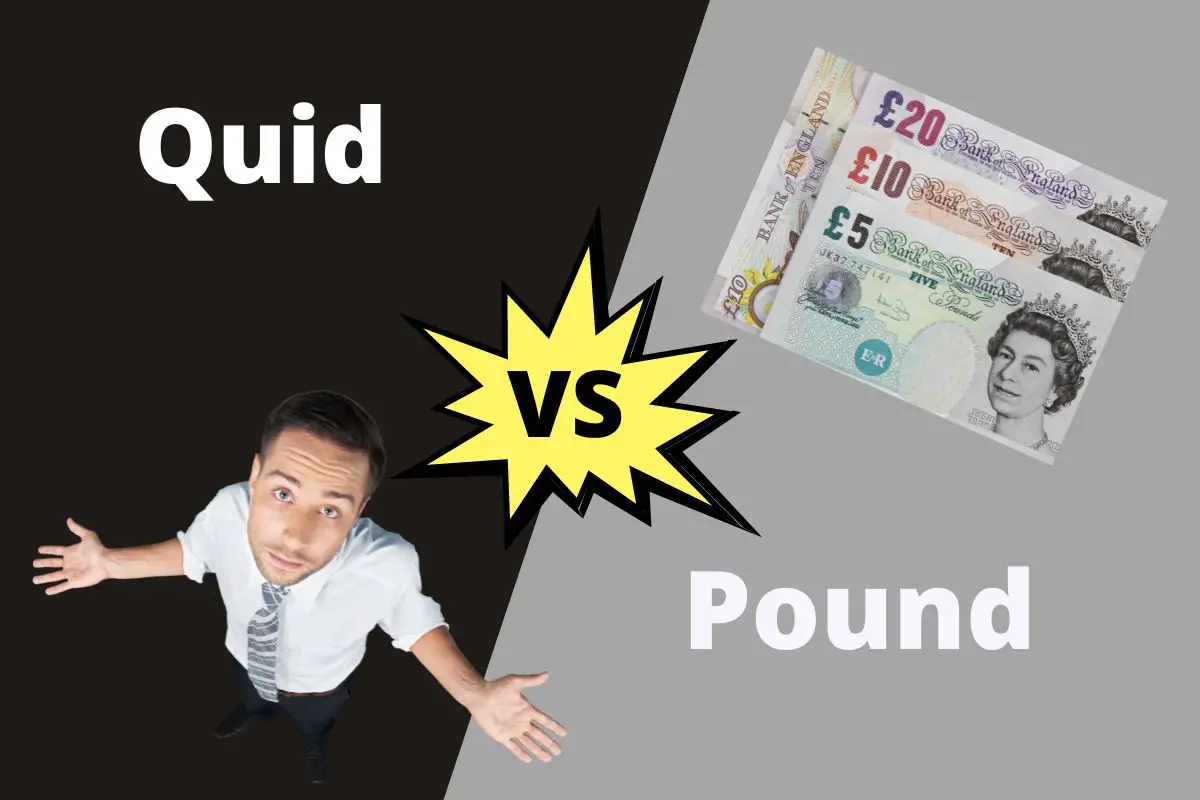What’s the distinction between quid and kilos? This query delves into the fascinating historical past and utilization of those phrases, exploring their evolution from historical origins to their fashionable purposes. Understanding the delicate nuances between “quid” and “kilos” unlocks a deeper appreciation for the complexities of language and the ever-shifting panorama of forex.
The historic context reveals how these phrases have advanced alongside British financial programs. From their origins to their fashionable utilization, we’ll hint the trail of those phrases via time, inspecting the variations of their utility in several contexts. This exploration will make clear the formal and casual utilization, highlighting the slang and colloquialisms that accompany them. We’ll analyze sensible purposes, evaluating how “quid” and “kilos” are employed in on a regular basis transactions and monetary conditions.
Historic Context
Understanding the evolution of “quid” and “kilos” requires a deep dive into British financial historical past. These phrases, integral to British commerce for hundreds of years, replicate shifts in financial energy, technological developments, and world commerce. Their altering values supply an interesting lens via which to look at the financial panorama of the previous.The connection between “quid” and “kilos” is not static; it is a dynamic interaction formed by historic occasions.
Initially, “kilos” served as the first unit of account, with “quid” rising as a colloquial abbreviation. The shifting worth of those models reveals essential details about inflation, financial development, and societal modifications.
Evolution of British Forex
The British financial system has undergone vital transformations all through its historical past. Tracing the evolution of “kilos” and “quid” unveils a posh tapestry of financial and political components. From the early adoption of coinage to the introduction of paper cash and ultimately the decimalization of the forex, the British system has constantly tailored to satisfy the wants of a altering economic system.
The Rise of the Pound Sterling
The pound sterling, the first unit of forex, has a wealthy historical past, courting again to medieval England. Its worth has fluctuated significantly over time, reflecting world financial developments and nationwide occasions. The pound’s place as a significant worldwide reserve forex has additionally modified over the centuries.
“Quid” as a Colloquial Time period
The time period “quid” emerged as a colloquial abbreviation for “pound.” Its utilization highlights the casual nature of language and the way slang evolves to replicate the on a regular basis realities of commerce. This colloquialism coexisted with the formal “pound” and have become prevalent in particular social contexts.
Historic Worth Fluctuations
The buying energy of “kilos” and “quid” has assorted considerably all through historical past. This fluctuation is instantly correlated with components similar to inflation, wars, financial crises, and technological developments. A radical examination reveals a posh relationship between the nominal worth and the true worth of the forex.
| Time Interval | Forex Unit | Equal Worth (Fashionable GBP) |
|---|---|---|
| twelfth Century | Pound Sterling | Extremely variable, relying on particular coin and circumstances; tough to exactly estimate. |
| 18th Century | Pound Sterling | Roughly equal to £1.50 – £2.00 (Fashionable GBP) |
| Early Twentieth Century | Pound Sterling | Roughly £2.50 – £3.00 (Fashionable GBP) |
| Mid-Twentieth Century | Pound Sterling | Roughly £3.50 – £4.00 (Fashionable GBP) |
| Late Twentieth Century | Pound Sterling | Roughly £4.50 – £5.00 (Fashionable GBP) |
| twenty first Century | Pound Sterling | £1 (Fashionable GBP) |
Definitions and Utilization
Understanding the nuances between “quid” and “kilos” is essential for efficient communication, each in formal and casual settings. These phrases, whereas seemingly interchangeable, have delicate variations of their utility, particularly when contemplating historic context and present utilization. This part delves into the particular meanings and numerous purposes of those phrases in fashionable English.The phrases “quid” and “kilos” are each used to consult with British forex, however “quid” is primarily a colloquialism.
Whereas “kilos” is the formal and official designation, “quid” is extra generally heard in on a regular basis speech, including a layer of informality. This distinction in utilization reveals the dynamic relationship between formal and casual language in fashionable communication.
Defining “Quid” and “Kilos”
“Kilos” is the formal, official unit of forex in the UK. It’s the acknowledged time period in official paperwork, monetary transactions, and formal settings. “Quid” is a slang time period for British kilos, usually utilized in casual settings and colloquial speech.
Totally different Utilization Contexts, What’s the distinction between quid and kilos
The applying of “quid” and “kilos” varies considerably based mostly on the context. “Kilos” is the usual time period for forex in official transactions, authorized paperwork, and formal monetary stories. “Quid” is favored in informal conversations, amongst buddies, and in sure contexts inside the media.
Formal vs. Casual Utilization
The desk beneath highlights the distinction between formal and casual utilization, illustrating the totally different contexts the place every time period is mostly employed.
| Context | “Kilos” | “Quid” |
|---|---|---|
| Formal | The corporate reported earnings of £10 million. | — |
| Casual | I want just a few quid for the bus fare. | I want some money. |
| Slang | — | Bought a quid? |
| Monetary transactions | I paid £20 for the ticket. | — |
| Informal dialog | — | I want a quid for lunch. |
| Media (Information stories) | The pound fell to a brand new low. | — |
This desk illustrates the totally different contexts the place every time period is mostly used. Be aware that some overlap exists, however typically, “kilos” is most popular in formal settings, whereas “quid” prevails in casual and slang contexts.
Examples of Utilization
The next examples additional illustrate the nuances in utilization.
- Formal: The federal government introduced a finances of 100 kilos.
- Casual: I want just a few quid for the groceries.
- Slang: Bought a quid for a espresso?
Sensible Variations: What Is The Distinction Between Quid And Kilos

Understanding the delicate but necessary distinctions between “quid” and “kilos” in on a regular basis monetary transactions is essential for readability and precision. Whereas each phrases consult with the British forex unit, their utilization varies based mostly on context, formality, and the particular monetary transaction. This part delves into the sensible nuances of utilizing every time period.Using “quid” is commonly related to casual settings, informal conversations, and even slang.
“Kilos,” alternatively, is the extra formal and customary time period, often utilized in official paperwork, monetary stories, {and professional} settings. These delicate variations can influence how a transaction is perceived and understood.
On a regular basis Transactions
The selection between “quid” and “kilos” usually relies on the social context. In informal conversations amongst buddies, “quid” is completely acceptable. Nonetheless, in a proper enterprise assembly, utilizing “kilos” is extra applicable. Think about a state of affairs the place a pal asks how a lot a product prices. “It is 10 quid,” is completely acceptable, whereas in a contract, it could be extra appropriate to jot down “10 kilos.”
Monetary Transactions
Totally different monetary transactions can affect the popular terminology. For instance, when making a big buy, similar to a home, the formal “kilos” is usually used within the contract and associated paperwork. Conversely, in a smaller transaction like shopping for espresso, “quid” is completely acceptable. In on a regular basis transactions, the selection is essentially a matter of non-public choice and the setting.
Totally different Monetary Conditions
The next desk illustrates the potential use circumstances for “quid” and “kilos” in varied monetary conditions. This highlights the context-dependent nature of the phrases.
| Monetary State of affairs | Most popular Time period | Reasoning |
|---|---|---|
| Informal dialog with a pal | “quid” | Casual and conversational tone |
| Formal enterprise contract | “kilos” | Formal {and professional} setting |
| Financial institution assertion | “kilos” | Normal and official documentation |
| Payroll slip | “kilos” | Official doc detailing earnings |
| On-line buying | Both | Each are acceptable, however “kilos” could be barely extra frequent |
| Monetary information report | “kilos” | Normal and impartial reporting fashion |
Nuances in Software
The nuances in making use of “quid” and “kilos” are primarily pushed by the formality of the scenario. The casual “quid” lends itself to informal dialog, whereas “kilos” is the usual unit utilized in official contexts. These delicate variations in utilization are necessary to keep up readability and appropriateness in several settings.
Final Conclusion

In conclusion, whereas “kilos” is the formal and customary unit of forex, “quid” serves as a colloquial and sometimes casual different. Understanding their historic evolution, definitions, and sensible purposes gives a complete view of their utilization in varied contexts. This nuanced understanding enriches our grasp of the British language and its wealthy tapestry of colloquialisms.
FAQ Useful resource
Is “quid” a universally accepted time period for kilos?
No, whereas “quid” is a typical casual time period for kilos sterling, its use varies regionally and in several social settings. It is typically understood within the UK however won’t be universally acknowledged.
Are you able to give examples of when “quid” could be used as an alternative of “kilos”?
In informal dialog amongst buddies or in casual settings, “quid” is commonly most popular over “kilos.” For instance, somebody would possibly say “I want just a few quid for lunch” as an alternative of “I want just a few kilos for lunch.”
How does the utilization of “quid” differ from “kilos” in formal contexts?
In formal settings, similar to official paperwork or enterprise transactions, “kilos” is the popular time period. Utilizing “quid” in these conditions could be thought-about casual and inappropriate.
